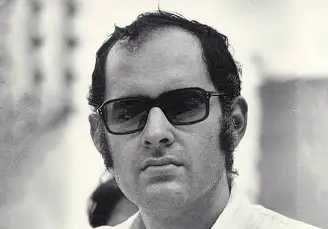Sanjay Gandhi: A Controversial Political Heir

Sanjay Gandhi: A Controversial Political Heir
Sanjay Gandhi was one of the most enigmatic and controversial figures in modern Indian politics. As the younger son of Indira Gandhi, India's first and only female Prime Minister, he wielded extraordinary influence despite never holding an official government position. His life was marked by authoritarian decision-making, ambitious projects, political controversy, and a tragic end at the young age of 33.
Early Life and Education
Sanjay Gandhi was born on 14 December 1946 in New Delhi, into India's most powerful political family—the Nehru-Gandhi dynasty. His father, Feroze Gandhi, was a prominent freedom fighter and parliamentarian, while his mother, Indira Gandhi, was a key political figure who later became the Prime Minister of India. His elder brother, Rajiv Gandhi, was more reserved and focused on his career in aviation before being drawn into politics.
Sanjay attended The Doon School in Dehradun but was not academically inclined. Unlike Rajiv, who pursued higher education at Cambridge, Sanjay did not go to college. Instead, he developed a passion for automobiles and engineering. He trained as an apprentice at Rolls-Royce in England, which sparked his ambition to create India’s first indigenous car.
The Maruti Dream and its Failure
Sanjay envisioned an affordable, made-in-India car for the masses. With strong backing from his mother, he founded Maruti Limited in 1971. However, the project was plagued by bureaucratic delays, mismanagement, and financial irregularities. Critics accused him of using political influence to secure government favors for the company.
The project remained stagnant during his lifetime, and after his death, it was nationalized and restructured under Maruti Udyog Ltd., eventually becoming Maruti Suzuki, India's largest car manufacturer today.
Rise in Politics and Influence During Emergency (1975-77)
Becoming the De Facto Ruler of India
Though he had no formal position in the Indian government, Sanjay became the most powerful person in India during the Emergency (June 1975 – March 1977), a period when Indira Gandhi suspended democratic rights and ruled by decree.
During this time, he controlled key policy decisions and had direct access to the police and administration. He was surrounded by a group of loyal party leaders and bureaucrats, including:
- Bansi Lal (then Defense Minister)
- V.C. Shukla (Minister of Information and Broadcasting)
- Navin Chawla (a bureaucrat who played a major role in the Emergency)
Sanjay often overruled ministers and senior Congress leaders, making major decisions without consultation. Even senior Congress politicians like Jagjivan Ram and Morarji Desai opposed his high-handed approach.
Controversial Policies During Emergency
- Forced Sterilization Campaign Sanjay launched an aggressive family planning drive aimed at controlling population growth. Millions of men were forcibly sterilized, especially in northern India, with police coercing people to undergo the procedure. This program led to massive anger, particularly among the poor and rural populations.
- Demolition of Slums in Delhi He ordered the demolition of slums in parts of Delhi, particularly in Turkman Gate, to make the city "cleaner." The demolitions led to violent clashes between police and residents, resulting in deaths and displacements.
- Censorship and Political Suppression Newspapers and media were censored. Opposition leaders like Jayaprakash Narayan, Atal Bihari Vajpayee, L.K. Advani, and others were jailed.
Sanjay’s authoritarianism created resentment, leading to the Congress Party’s crushing defeat in the 1977 elections.
Relationship with Family
Indira Gandhi: A Mother's Unwavering Faith
Indira Gandhi deeply trusted and favored Sanjay over Rajiv, despite his aggressive and controversial style. Many believe that Indira overlooked his faults and allowed him unchecked power during the Emergency.
After the Congress Party's defeat in 1977, Indira was arrested briefly. It was Sanjay who worked behind the scenes to rebuild her political strength, paving the way for her return to power in 1980.
Rajiv Gandhi: The Reserved Elder Brother
Unlike Sanjay, Rajiv Gandhi had little interest in politics. He was a commercial pilot with Indian Airlines. The brothers had contrasting personalities—Sanjay was aggressive and politically ambitious, while Rajiv was mild-mannered and preferred a quiet life.
However, after Sanjay’s death, Rajiv was reluctantly pushed into politics by his mother, eventually becoming Prime Minister in 1984 after Indira Gandhi’s assassination.
Maneka Gandhi: Wife and Later Rival
Sanjay married Maneka Anand in 1974. She was a young, outspoken woman who later became a prominent politician.
Their only child, Varun Gandhi, was born in 1980.
After Sanjay’s death, tensions grew between Maneka and Indira Gandhi. Maneka was eventually forced out of Indira’s house in 1982 and later joined opposition politics, becoming a minister in the BJP-led governments.
Varun Gandhi: The Political Heir Outside Congress
Sanjay’s son, Varun Gandhi, became a politician but joined the Bharatiya Janata Party (BJP) instead of the Congress. He has been a Member of Parliament and has distanced himself from the Gandhi family’s Congress legacy.
Return to Power and Sudden Death (1980)
In 1980, Indira Gandhi returned to power, and Sanjay was elected as Member of Parliament from Amethi. Many believed that he was being groomed to succeed Indira as Prime Minister.
However, his life was cut short in a tragic accident. On 23 June 1980, Sanjay was flying a new Pitts S-2A aircraft over Delhi when he lost control while performing a stunt. The plane crashed near Safdarjung Airport, and he died instantly.
His sudden death shattered Indira Gandhi, who was emotionally dependent on him. This forced Rajiv Gandhi to enter politics, changing the course of India’s leadership.
Legacy and Controversy
Supporters View
- Sanjay was a visionary who pushed for industrialization and modern infrastructure.
- His Maruti car project eventually became India’s most successful automobile brand.
- He was decisive and action-oriented, unlike other Congress leaders.
Critics View
- He was authoritarian and undemocratic, wielding power without accountability.
- His forced sterilization and slum demolitions caused mass resentment.
- His influence over Indira weakened Indian democracy during the Emergency.
Despite his short life, Sanjay Gandhi remains one of the most debated figures in Indian politics. His impact—both positive and negative—continues to shape the Nehru-Gandhi dynasty and India's political landscape.







